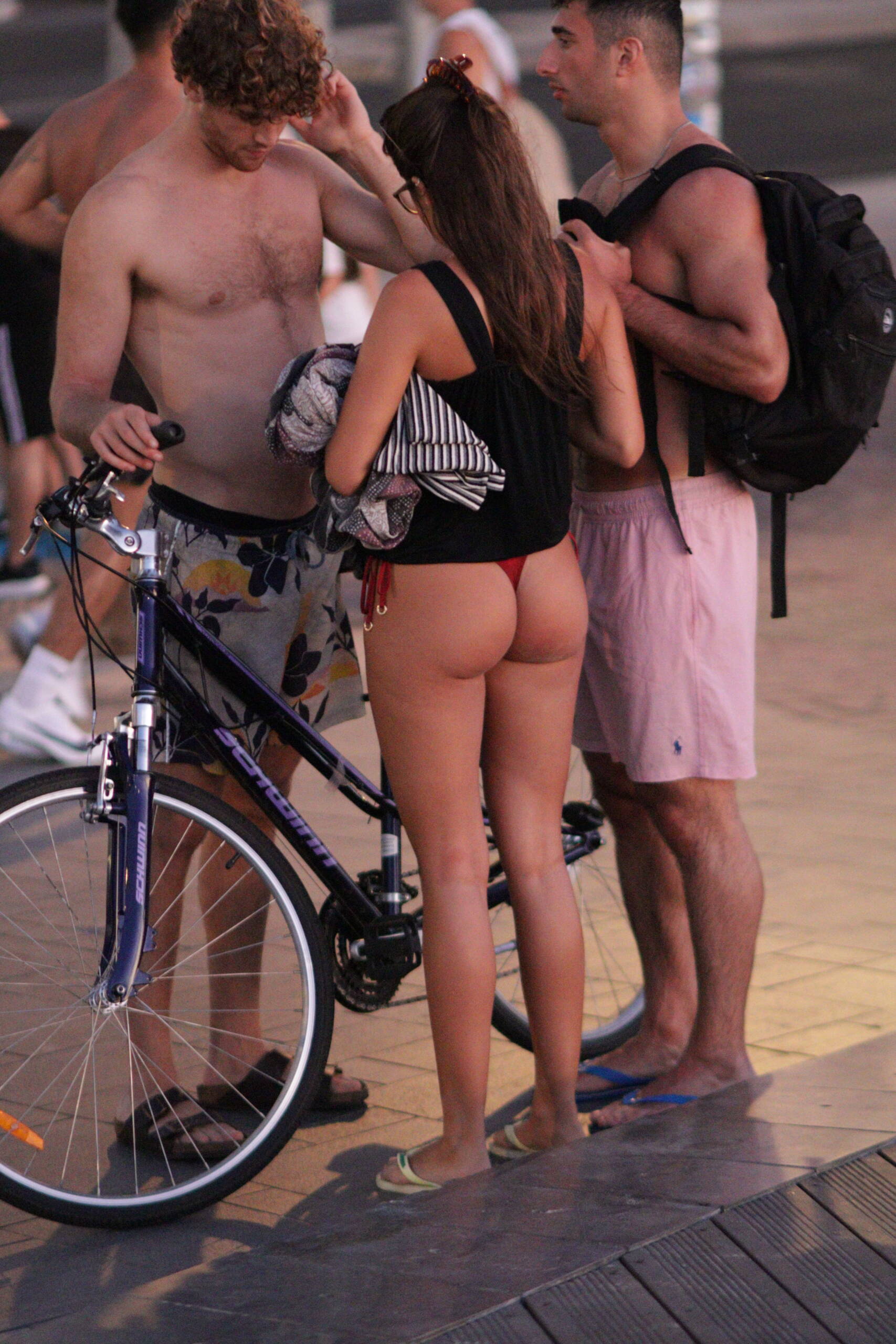The photo captures a fleeting summer moment on the boardwalk, where the evening light softens everything into warm tones of amber and rose. Three friends gather, lost in conversation, the casual intimacy of their body language suggesting that time is stretching gently, as it always does near the sea. A bicycle leans between them, its metal frame catching the last glimmers of daylight, serving both as transport and as an anchor for their pause in motion.

The woman at the center of the frame, standing confidently in a minimal swimsuit, holds a striped shirt in her arms, as if she has just come off the beach but isn’t ready to cover up just yet. Her companions mirror the same ease—bare-chested, in swim trunks, shoulders sun-kissed and relaxed. Each detail speaks of that twilight hour when the air is still warm but the city is already preparing for night. The slight tilt of heads, the closeness of stance, and the half-distracted gestures suggest plans being made: where to head next, whether for a late swim, a drink, or simply more wandering along the water’s edge.
There is a raw, unposed quality to the image that makes it feel timeless. It’s not about perfection but about presence—friends caught in the flow of a summer evening, between sand and street, laughter and silence, freedom and routine. It could be Tel Aviv, Barcelona, or Miami; the geography hardly matters. What lingers is the universal memory of seaside nights where you lose track of time, and the city, with all its lights and noise, waits patiently for you to return.
Leave a Reply